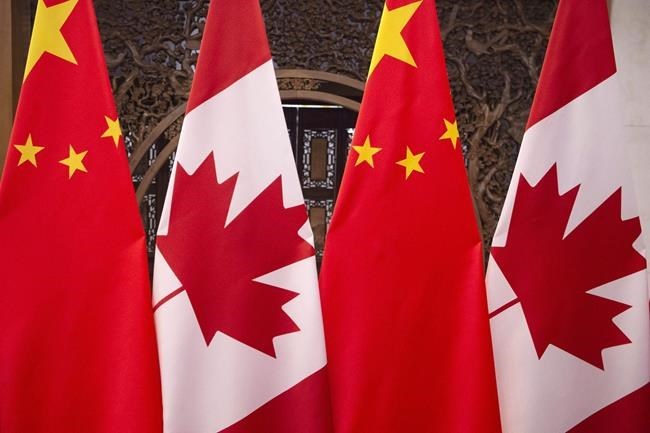OTTAWA — China and Russia are meddling in Canadian affairs, a national security-and-intelligence watchdog says in a new report that cites evidence of "significant and sustained" foreign interference directed at Canada.
In its annual report, made public Thursday, the National Security and Intelligence Committee of Parliamentarians singled out the two countries for trying to exploit the openness of Canadian society and penetrating key institutions for their own ends.
It said these states and other unnamed ones target ethnocultural communities, try to corrupt the political process, manipulate the media and influence debate on university campuses.
"Each of these activities poses a significant risk to the rights and freedoms of Canadians and to the country's sovereignty: they are a clear threat to the security of Canada," the report said.
The committee, established in 2017, has the authority to review sensitive activities across the federal government. It submits classified reports to the prime minister, which are later tabled in Parliament in edited form.
As a result, many details and examples of foreign interference, as well as the names of additional countries engaged in such activity, were stripped from the report presented Thursday.
One in five Canadians was born abroad and a similar proportion identify their mother tongue as one other than English, French or an Indigenous language.
The targeting and manipulation of ethnocultural communities is the primary means through which foreign states try to control messages and influence decisions at all levels of government, the report said.
"Some individuals willingly act as agents of a foreign power for a variety of reasons including patriotism or the expectation of reciprocal favours. These states also co-opt individuals inside and outside of ethnocultural communities through flattery, bribery, threats and manipulation."
Overall, the committee found efforts by foreign adversaries to interfere in Canada's affairs pose a significant and growing risk.
"Canada is not alone in facing this threat. Its closest security and intelligence allies, including those within the Five Eyes and NATO, are targeted by many of the same foreign states using many of the same techniques."
(The "Five Eyes" countries are Canada, the United States, Britain, Australia and New Zealand.)
Liberal MP David McGuinty, chairman of the committee, told a news conference that inter-departmental collaboration on foreign interference within the federal government was done "on a case-by-case" or even ad-hoc basis.
"We found also that there are differences in how individual organizations interpret the gravity and prevalence of the threat."
The committee recommended foreign interference be addressed in a comprehensive, whole-of-government approach. The MPs also called for central leadership, pointing to Australia's creation of a national co-ordinator to guard against interference.
Other reviews summarized in the annual report concluded:
— Visible minorities were underrepresented across all levels in most security-and-intelligence organizations, and problems of harassment, violence and discrimination persisted in some, specifically National Defence, the Canadian Armed Forces and the RCMP.
— The Canada Border Services Agency lacked written direction from the public safety minister for its conduct of sensitive national security activities, representing an accountability gap.
In a second, special report the committee said the National Defence might be running afoul of the Privacy Act with its overseas collection of information on Canadians. Given the concern, it referred the matter to Attorney General David Lametti.
The committee called on National Defence to rescind a directive that appeared to authorize the targeting of Canadians. It also recommended the defence minister ensure compliance with federal privacy law in all of its intelligence activities, whether in Canada or abroad.
Finally, it said the minister should introduce new legislation governing defence intelligence operations.
This report by The Canadian Press was first published March 12, 2020.
Jim Bronskill , The Canadian Press

